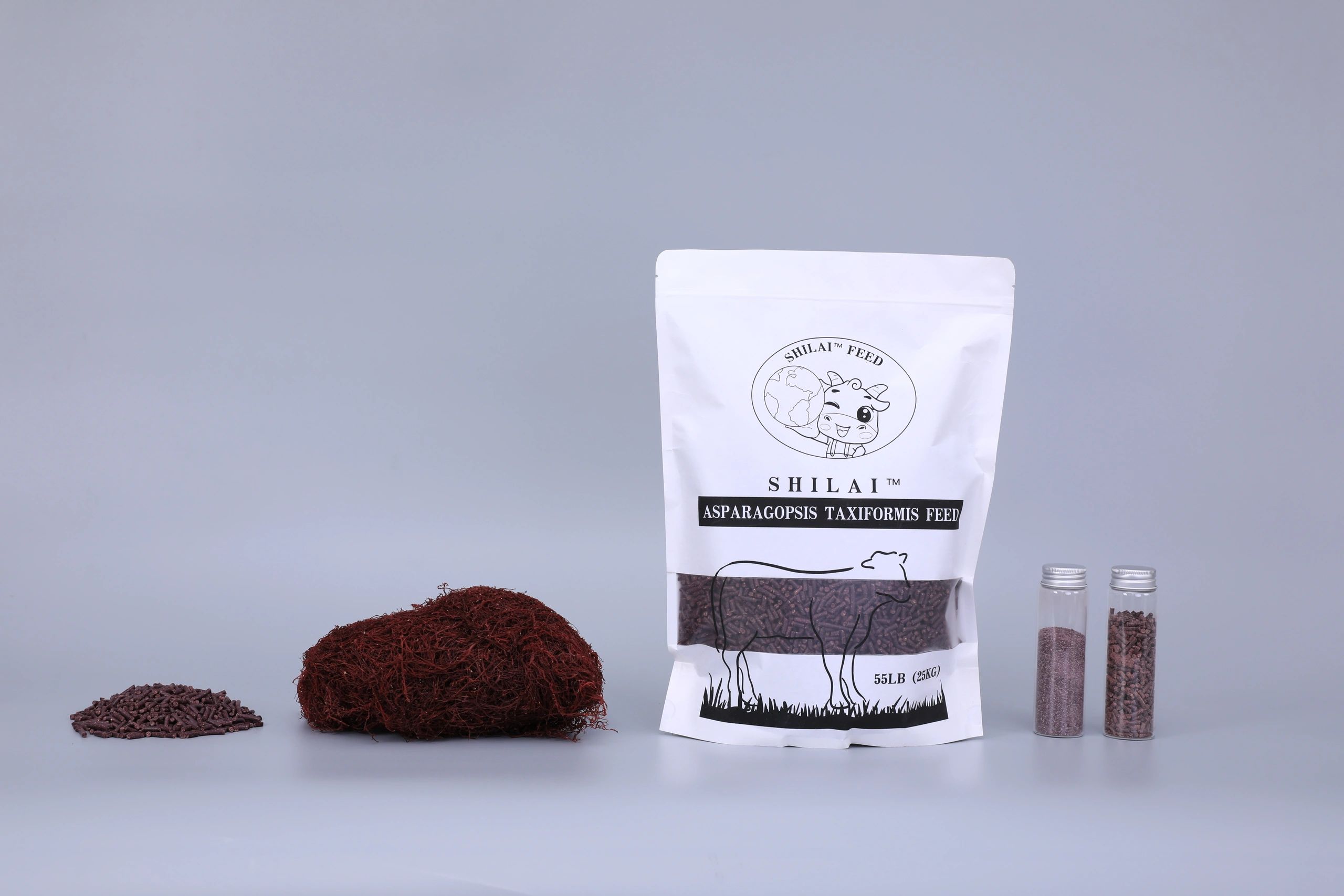
Farming worldwide represents a substantial fraction of greenhouse gas emissions, principally from animal husbandry.
Methane’s warming potency exceeds that of carbon dioxide, so cutting methane emissions delivers outsized climate benefits.
Researchers are investigating Asparagopsis taxiformis, a red marine alga, as a potential breakthrough for reducing methane from ruminants.
Contained within the alga is a bioactive molecule that suppresses methanogenesis in the rumen and reduces total methane emissions.
Formulating feeds with Asparagopsis taxiformis has produced promising early results that suggest a viable path to reduce farming-related greenhouse gas emissions.
- In addition to methane cuts, Asparagopsis taxiformis brings several beneficial side effects for farm operations.
- Enhanced nutritional value for livestock
- Opportunities to develop sustainable aquaculture-driven industries
Further investigation and trials are still needed, yet Asparagopsis taxiformis shows major promise as a sustainable emissions reducer.
Activating the Potential of Asparagopsis taxiformis Powder in Feed Formulations
Concentrates and powders of Asparagopsis taxiformis present a realistic route to operationalize its feed application benefits.
Its biochemical profile offers nutrients and functional compounds that may boost animal growth and efficiency.
Using A. taxiformis powder in feed recipes has reduced methane in pilot work while also contributing necessary trace elements.
Sustained R&D is needed to finalize dosage regimes, processing protocols, and long-term performance and safety evidence.
Asparagopsis taxiformis as a Catalyst for Sustainable Animal Farming
This red seaweed is gaining attention as an approach to address environmental problems tied to conventional animal agriculture.
Feed integration of the algae could contribute to significant methane declines and a lower environmental burden across livestock systems.
Research suggests the seaweed can additionally support better animal health and production performance under certain conditions.
Large-scale implementation and chronic impact assessment remain to be proven, yet preliminary results are highly encouraging.
Methane Reduction Through Asparagopsis Feed Additive
This red alga is being developed as an approach that can substantially cut methane produced by grazing ruminants.
The reduction results from interference with methanogenic archaea in the rumen caused by the seaweed’s constituents.
- Trials and studies have repeatedly observed large methane declines with Asparagopsis supplementation.
- Incorporating Asparagopsis into rations is an environmentally sound method for methane abatement.
- Farmers and producers are increasingly exploring the adoption of Asparagopsis in feeding programs.
Asparagopsis: Seaweed Fueling Sustainable Change in Animal Agriculture
Seaweed-based innovation, exemplified by Asparagopsis taxiformis, is showing potential to lower enteric methane at scale.
- Experimental feeding of Asparagopsis yielded large methane reductions, suggesting important environmental gains.
- The approach may enable more sustainable food systems that reduce emissions while maintaining farm productivity.
As decarbonization efforts accelerate, Asparagopsis represents a distinctive marine-based pathway to reduce agricultural methane.
Maximizing the Methane-Reduction Potential of Asparagopsis taxiformis Feed Products
Scientific teams are investigating best-practice processing and dosing to improve the performance of A. taxiformis in feeds.
The Science Behind Asparagopsis taxiformis's Methane-Lowering Effects
The underlying science ties the seaweed’s compounds to suppression of methanogenic microbes in the rumen, cutting methane formation.
Bromoform and related halogenated compounds are thought to play a major role in disrupting methane production, with ongoing safety studies.
Integrating Asparagopsis into Feed Formulations for Sustainable Farming
Asparagopsis offers both nutritive value and active molecules that together justify its consideration for feed formulations.
Asparagopsis integration may improve nutrient density, digestive efficiency, and deliver ancillary antimicrobial or immunomodulatory effects.
Leveraging Asparagopsis taxiformis for Environmental Gains in Food Production
Asparagopsis taxiformis represents an emerging, nature-based intervention to lower agricultural emissions and support sustainable food systems.
- Additionally, the species offers a useful blend of nutrients that complement feed formulations.
- Researchers and industry are collaboratively exploring how Asparagopsis can be used across food and aquaculture sectors.
Embedding the seaweed in feed strategies could help diminish the overall environmental impact of farming operations.
How Asparagopsis Feed Additives Can Improve Animal Health and Performance
The seaweed is gaining recognition for potential dual benefits: emissions reduction and enhancements in animal performance.
Use in diets has been associated with improved nutrient absorption and feed conversion, which can support weight gain and overall condition.
The seaweed’s bioactives may provide antioxidant and immune-support effects that support animal robustness and disease resistance.
Growing market and regulatory interest in emissions reduction underscores the potential role for Asparagopsis as development continues.
Asparagopsis-Enabled Feeds as a Step Toward Carbon Neutral Farming
The farming sector faces mounting pressure to shrink its carbon footprint, and Asparagopsis offers a plausible mitigation pathway.
- Researchers identify the algae’s bioactives as agents that hinder methanogenic activity in the rumen, decreasing methane formation.
- Research trials have repeatedly demonstrated meaningful methane reductions linked to Asparagopsis dietary inclusion.
The strategy presents both a sustainable feed alternative and a potential lever to transform agricultural emissions trajectories.
